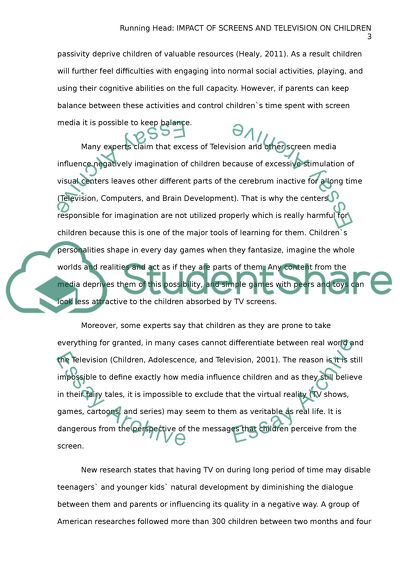Cite this document
(“Impacts of Screens and Television on children Research Paper”, n.d.)
Impacts of Screens and Television on children Research Paper. Retrieved from https://studentshare.org/journalism-communication/1670671-impacts-of-screens-and-television-on-children
Impacts of Screens and Television on children Research Paper. Retrieved from https://studentshare.org/journalism-communication/1670671-impacts-of-screens-and-television-on-children
(Impacts of Screens and Television on Children Research Paper)
Impacts of Screens and Television on Children Research Paper. https://studentshare.org/journalism-communication/1670671-impacts-of-screens-and-television-on-children.
Impacts of Screens and Television on Children Research Paper. https://studentshare.org/journalism-communication/1670671-impacts-of-screens-and-television-on-children.
“Impacts of Screens and Television on Children Research Paper”, n.d. https://studentshare.org/journalism-communication/1670671-impacts-of-screens-and-television-on-children.


